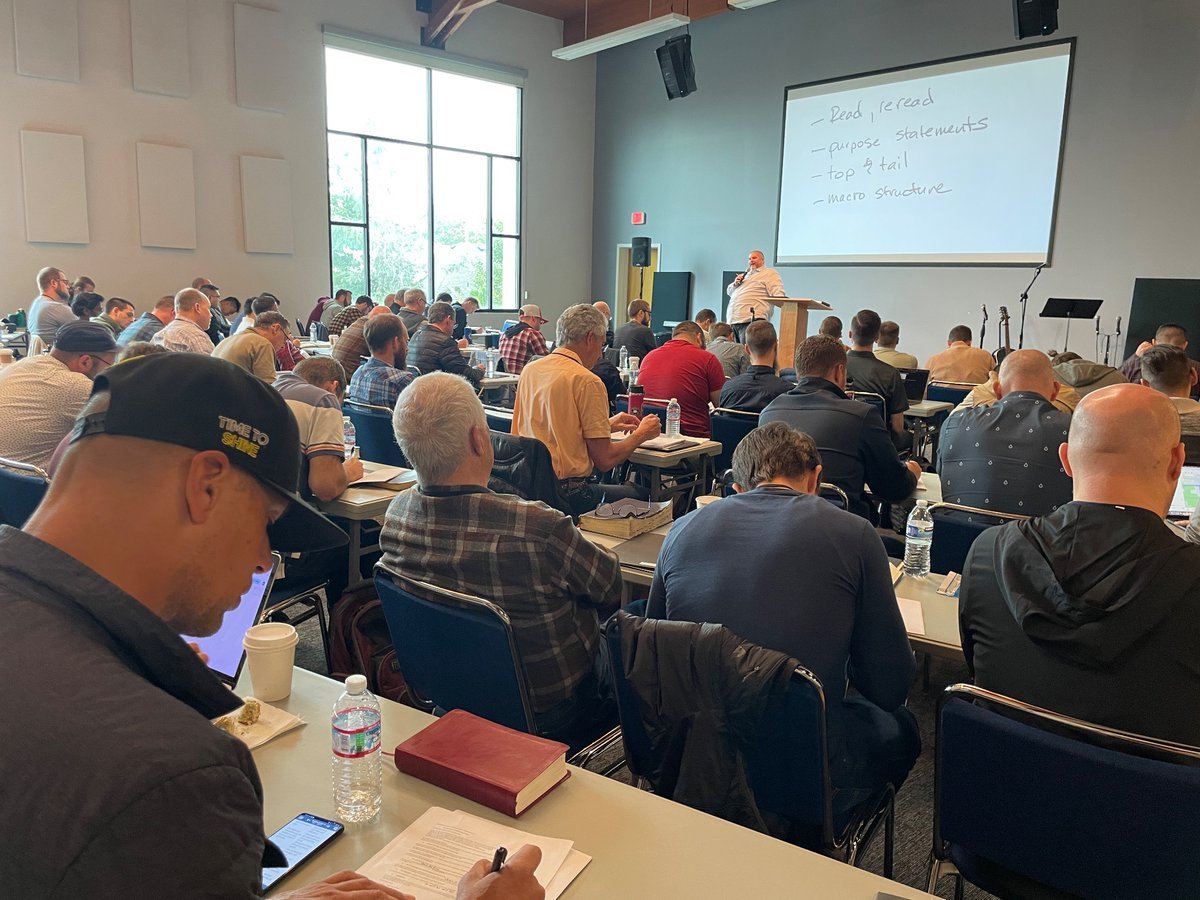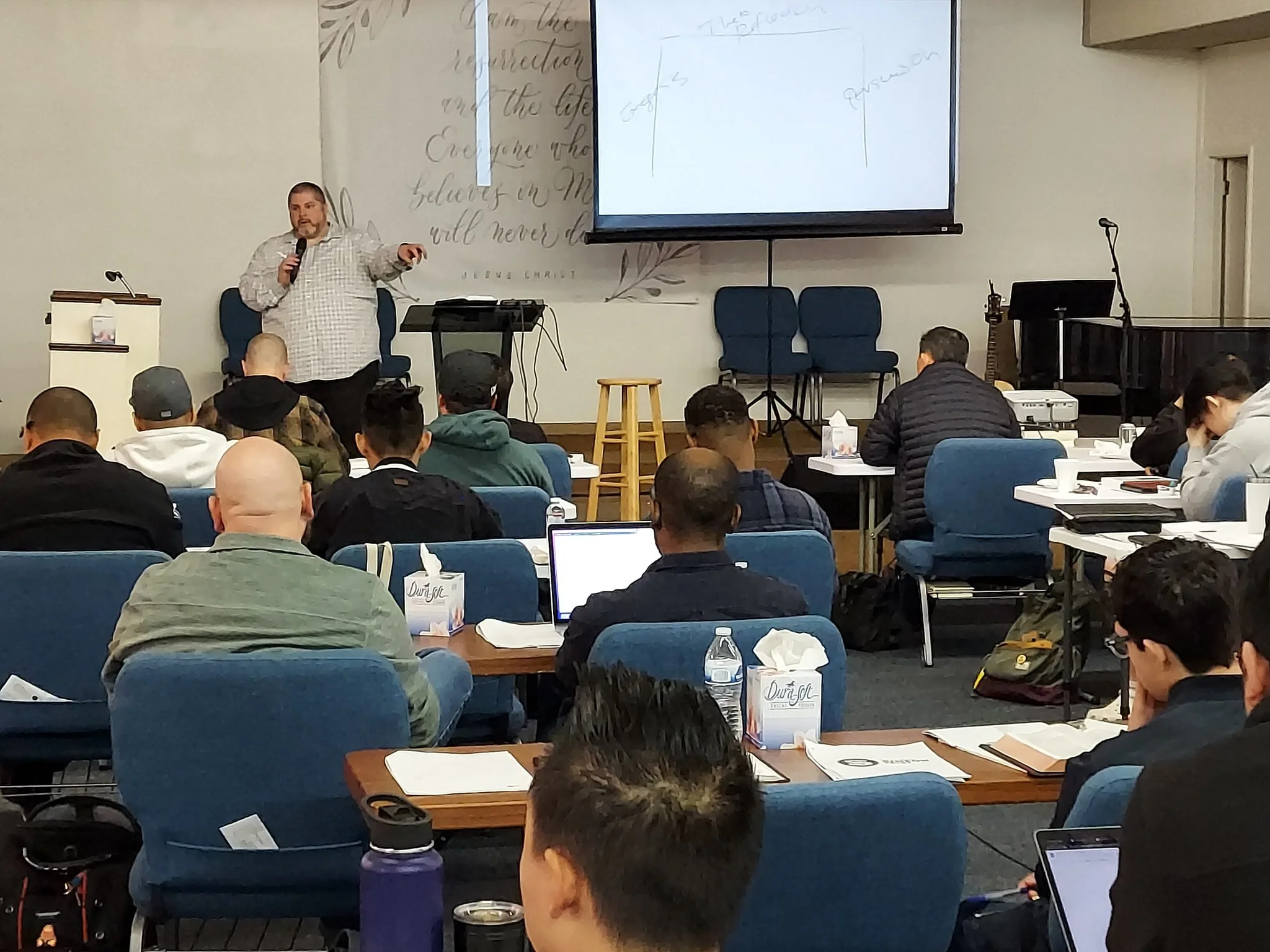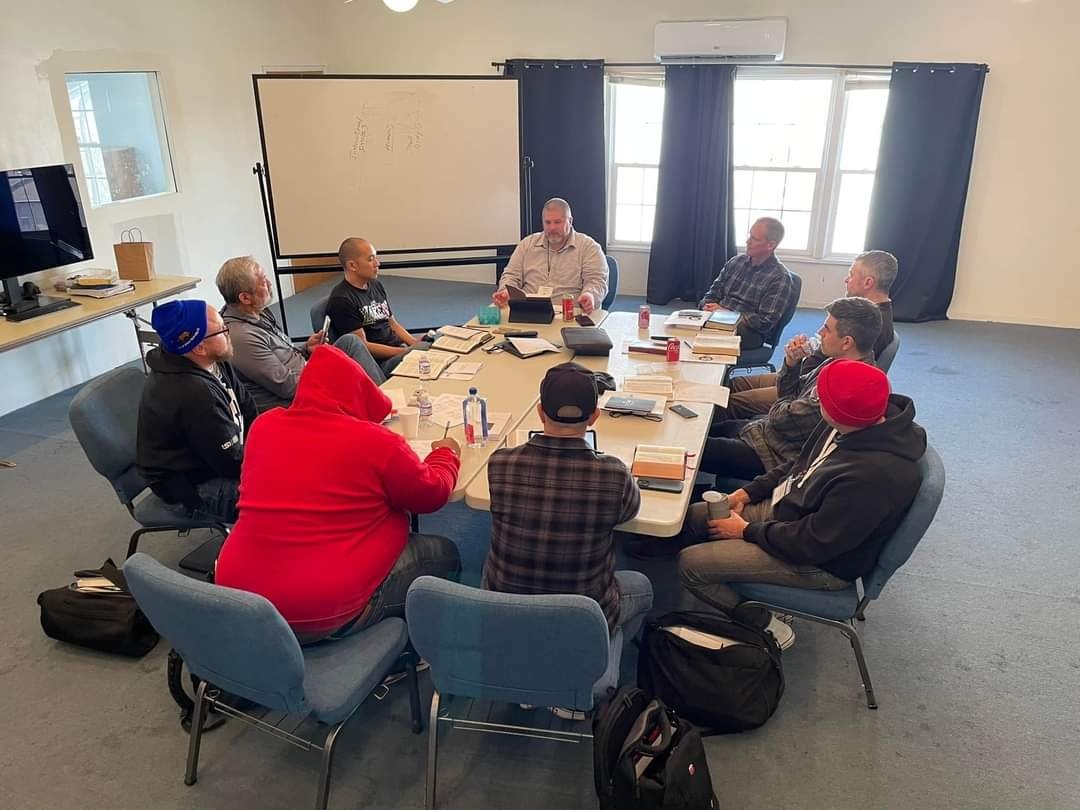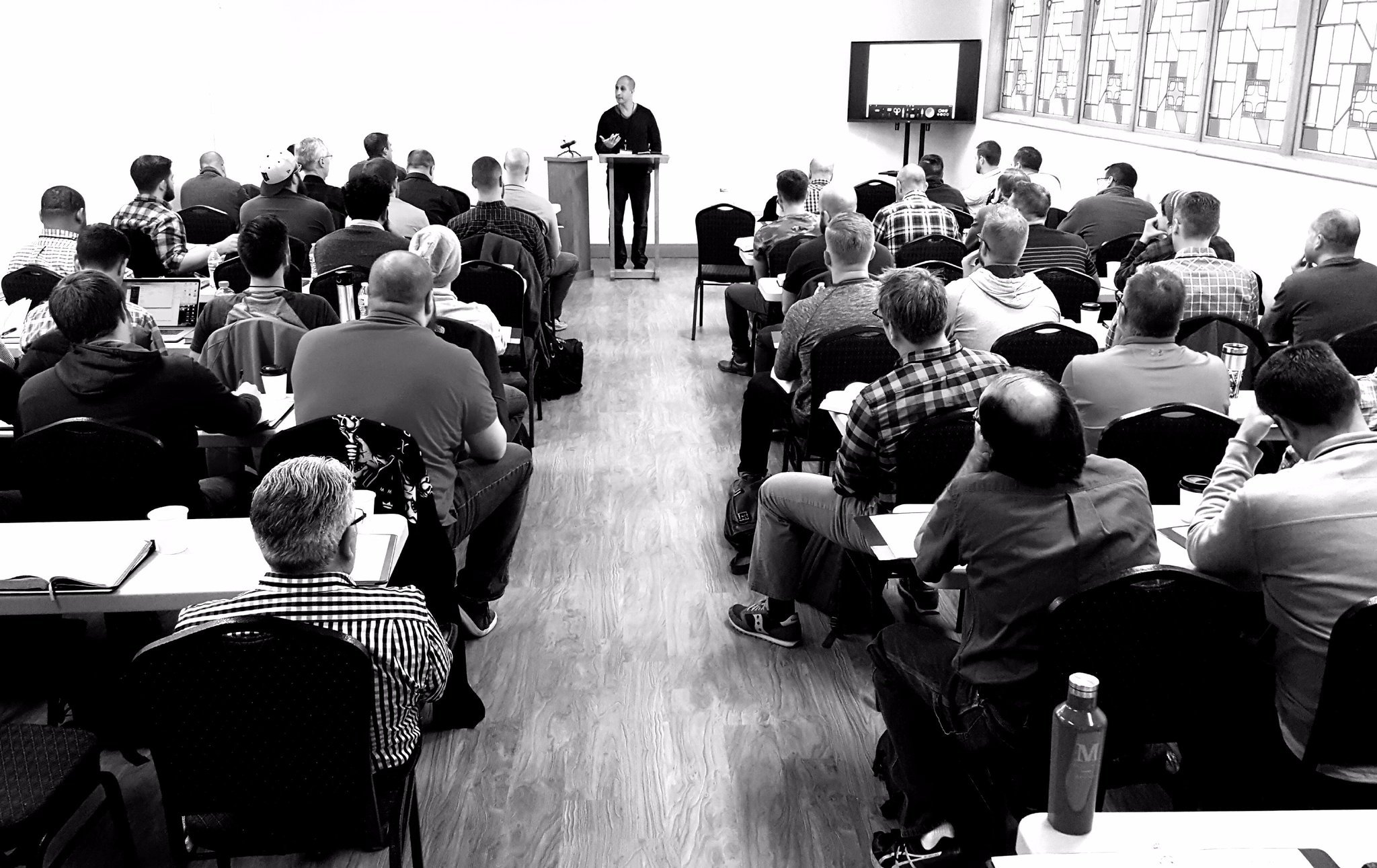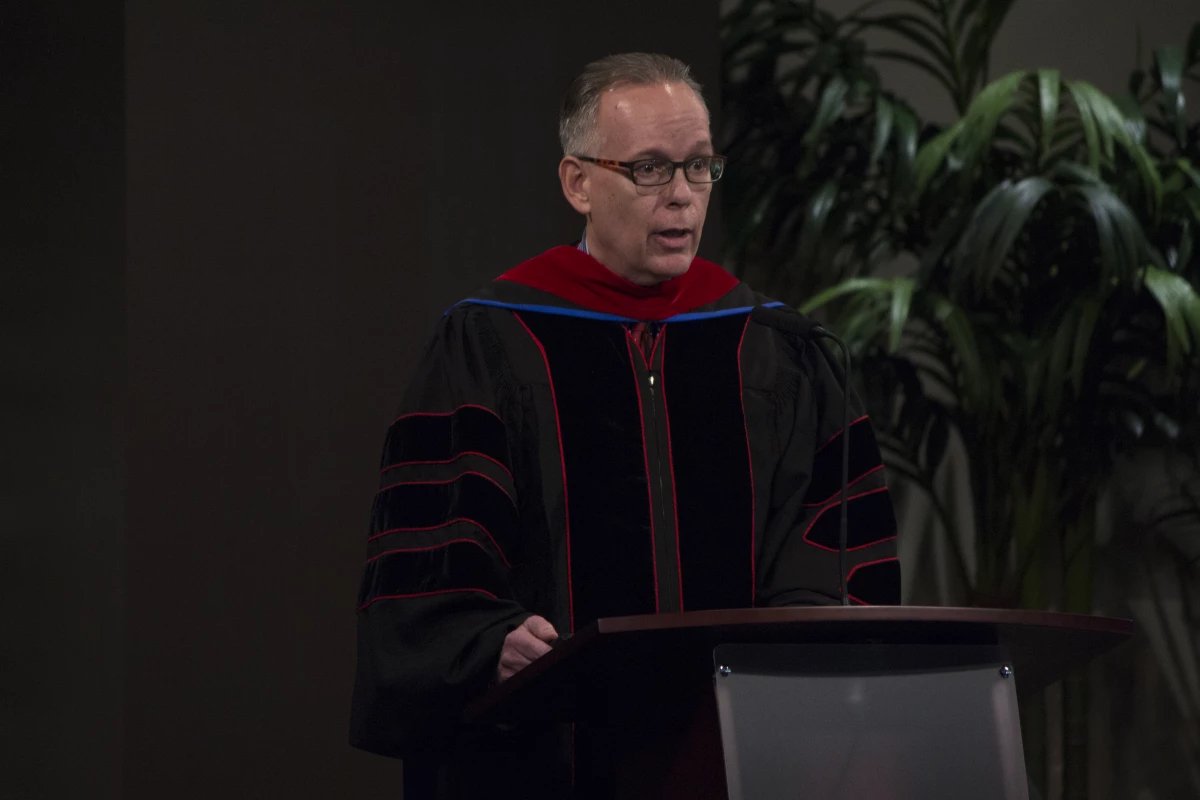It was an encouraging Sunday! Josiah hugged the Text and faithfully preached God’s Word well. Robbie illustrated the point of the same Text for children and held captive everyone’s attention. It’s a wonderful thought as I reflect on my journey with these men, and others. Raising up Pastors is no quick task, and there’s little about it that we might call simple.
“Your main point is true, but it’s not the point your Text is making,” I said to Josiah, sitting across the booth as I handed him back his sermon outline. It was eight years and many sermons earlier. I could see a little frustration in his eyes. “Sure, you can step into the pulpit and preach a smattering of biblically true things, many preachers do, but it won’t be exegetical exposition. It will be a systematic sermon, which we usually call topical. That’s okay. But if you do that, don’t say you are preaching on this Text, say you are preaching on that topic.” He didn’t want to settle into reproducing what he had seen so many popular preachers do. Instead, he committed himself to speaking God’s Word, not his own, and in a way that is governed by God’s Word, not his systematic theology or his own opinions. I warned him, it’s challenging work.
As a generous Pastor was giving a much younger me a chance to make mistakes, learn, and grow, I decided that if I ever became a Pastor, I would do the same. What I didn’t realize then was how slow, difficult, and costly it is to join God’s work to raise up good Pastors. There are no shortcuts, unless the goal is to raise up mediocre public speakers who would rather run organizations than stand in the breech and shepherd the Bride Jesus bought with his blood.
For me, the process starts with an intern, and I’ve had a few. Most never get past this stage of the journey, but that’s the design of any good internship. An internship is like the second seat on a Zamboni. It’s the end of the 1st quarter of a hockey game and out comes the Zamboni to resmooth the ice. The driver knows what he’s doing. Maybe he’s had 20 years of practice and in that moment, he has a job to do. However, at many games I’ve attended, there’s a young kid on the second seat. He hardly has any idea how the Zamboni works or how to do the work, but there he is waving to the crowd and having an exciting time, doing extraordinarily little good. A ministry internship should serve like the second seat on a Zamboni. It’s an opportunity to get a small look behind the scenes and see what it’s like on the ice. To mix metaphors, an intern gets to see how the sausage is made, although rarely does he get to run the grinder. Never do they get to drive the Zamboni, although some still try to take the wheel.
The internship is a suitable place for someone thinking he or she might be called to ministry. It’s a time to see what ministry could be like. It’s a time for others to affirm the calling or suggest that God has something else in store. It’s a place to work it out. The expectations are low and the grace for mistakes is high.
I’ve had a few interns over the years. Some have rightly figured out that they should head in a different direction, and they were happy to do so. I once had an intern who couldn’t seem to do the tasks we gave him, but we quickly discovered he was an outstanding listener, and he loved the Bible. During his internship, he learned it wasn’t pastoral ministry he was called to but service as a Biblical Counselor. It opened his joy, and today he’s an outstanding Biblical Counselor. A small few will determine that pastoral ministry is the right next step, and they continue in that direction.
As soon as it’s found that there is likely some kind of ministry beyond the internship—which may not take long—it’s time to start working on a statement of theological belief (or confession) and a philosophy of ministry. Before a person should be entrusted with any staff responsibilities or leadership, it’s important to know if his theology strongly lines up with that of the local church. It’s one thing to affirm the beliefs for membership, it’s another altogether to have the kind of deep theological understanding needed to work with a wide variety of those members. It’s also vital to be sure there’s alignment about what ministry is and how it should be done. There are many different philosophies, which is fine, but it’s painful on a local body if all those approaches compete within the same church. It’s good to know early. In my early days of ministry growth, I learned that I had a serious theological difference with the church I was a with. It would have been a miserable, distracting slog had I overlooked those differences and tried to serve there despite the theological disparity. Instead, I found where I could serve more in tune with like-minded ministers, and it was not only good, but it was also healthy.
Josiah came up through the intern path. He was a great intern. Then he worked hard on this personal theological statement and had a season of skyrocketing growth because of the process. His philosophy of ministry helped ground his haphazard thoughts about ministry work. He gained great clarity, and we discovered it was a great fit at Redeeming Life Church with me. Robbie did not come to us as an intern. We hired him. Therefore, we had to examine his theology and philosophy as a part of the interviews. When hiring someone with any level or responsibility on the staff, it is wise to get theology and philosophy worked out before making the hire, especially if you predict the new staff member having a growing responsibility. Get ahead of the differences early before roots grow down in the wrong places.
I’ve had many men stall out in the theology and philosophy growing season. They struggle to get it sorted out. They struggle to sort themselves out. But better to stall out here than after a few years of teaching and leading God’s people with no real foundation. There have been times when this process has led men to seek service in places that fit better. That happened to me, so I understand it well. Oh, but when a man’s theological creed and philosophy fit well with the church and staff team, now you have something special! That was Josiah. We raised funds to bring Josiah on staff and continue the journey. Now he’s an Elder and will one day be a Senior Pastor. He’s grounded and knows himself and his ministry. That’s how a church should seek to raise up Pastors.
I’ve been able to bring on others in bi-vocational roles through this process. I’ve also help men find their way and fit in places where they serve with joy. It’s been a rewarding blessing. It’s especially wonderful when my family and I get to sit under the skilled, grounded ministry of men and women whom we’ve had a small hand in their journey.
It’s important that local churches look to raise up called men and women. But this kind of work is slow. It can be discouraging at times. It’s costly, especially with the time and funds invested. It can be emotionally taxing. But when it’s right, we get a front row seat to see the working of God in growing Pastors. And that makes it all worth it.
— You can listen to Pastor Josiah’s sermon and Robbie’s Children’s sermon here.











